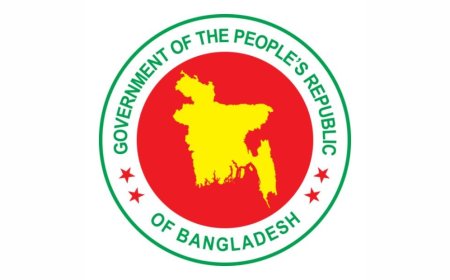Sensitive state information at risk of being exposed to third parties
Plan to outsource e-passport services at overseas embassies

Controversy Over Outsourcing E-Passport Services at Foreign Missions
Authorities under the Ministry of Home Affairs are preparing to outsource e-passport operations at Bangladesh's foreign missions. However, the Welfare Association of Officers and Employees within the Ministry has raised serious concerns, claiming the move is proceeding without open tenders or adherence to proper procedures. They warn that outsourcing could compromise sensitive state data, making transparency and accountability virtually impossible.
The association argues that entrusting private companies with e-passport operations could lead to the leakage of classified information. In response, they have submitted a 13-point memorandum to Khoda Bakhsh Chowdhury, Special Assistant to the Chief Adviser (with the rank of State Minister), and Senior Secretary Nasimul Gani, urging that the task remain with the Passport and Visa Wing rather than being handed over to private entities. The proposal has sparked considerable unrest within the Ministry of Home Affairs.
Several Welfare Association leaders, speaking to Kaler Kantho on condition of anonymity, alleged that outsourcing firms with ties to former authoritarian regimes are once again being favoured. They further claim that illegal financial transactions worth several crores of taka have taken place to facilitate this arrangement. “Instead of outsourcing, why not strengthen the existing workforce to improve service quality? Why the eagerness to hand over control of sensitive passport data to third parties? They seem determined to finalise lucrative deals before the upcoming national elections,” one official remarked.
While both Khoda Bakhsh Chowdhury and Nasimul Gani declined to comment, Md. Shamim Khan, Additional Secretary (Security & Immigration Division) of the Security Services Division, said:
“Outsourcing has its pros and cons. When our officers are posted abroad, many only work a couple of hours and spend the rest of the day idling. We’re considering outsourcing to ensure better service delivery. There’s no other agenda.”
The memorandum claims that a policy is currently being drafted to hand over e-passport and visa services at foreign missions to private companies—effectively bypassing the Passport and Visa Wing, which was originally set up to provide efficient, high-quality services to both expatriate Bangladeshis and foreign nationals. The wing has long been recognised for its performance and professionalism.
According to the association, previous outsourcing experiments during autocratic regimes resulted in serious corruption. Companies handpicked without competitive tenders reportedly extorted money from expatriates and caused operational failures at embassies.
The association’s 13-point memo includes several key concerns:
-
Loss of State Control Over Sensitive Data: Private companies gaining access to passport systems could lead to leakage of confidential state information.
-
Inability to Make Critical Corrections: Outsourced firms won’t have the authority to amend personal details or resolve issues related to NID or birth registrations—leading to increased harassment of expatriates.
-
Nepotism in Hiring: Outsourcing firms often hire relatives instead of skilled, trained professionals, compromising service quality.
-
History of Corruption: Previous arrangements—such as the controversial Irish firm in Saudi Arabia—were plagued by irregularities and mismanagement.
-
Financial Misconduct: These companies have a track record of misreporting revenue and overcharging applicants.
-
Syndicate Control: Outsourcing firms often act as powerful syndicates, making embassy officials powerless in enforcing accountability.
-
Weak Government Oversight: Without direct supervision by government officials, issues like data confidentiality and quality control are jeopardised.
-
Risks to Government Assets: Expensive machines and servers containing sensitive citizen data could be misused or damaged under private control.
-
Potential for Fraudulent Enrollment: There’s a risk that firms could illegally issue passports to non-Bangladeshis, including Rohingyas.
-
Service Disruption After Contract Ends: When contracts expire, disputes and legal battles could disrupt services—similar to the unresolved ESKL case in Malaysia.
What's Your Reaction?





















































































